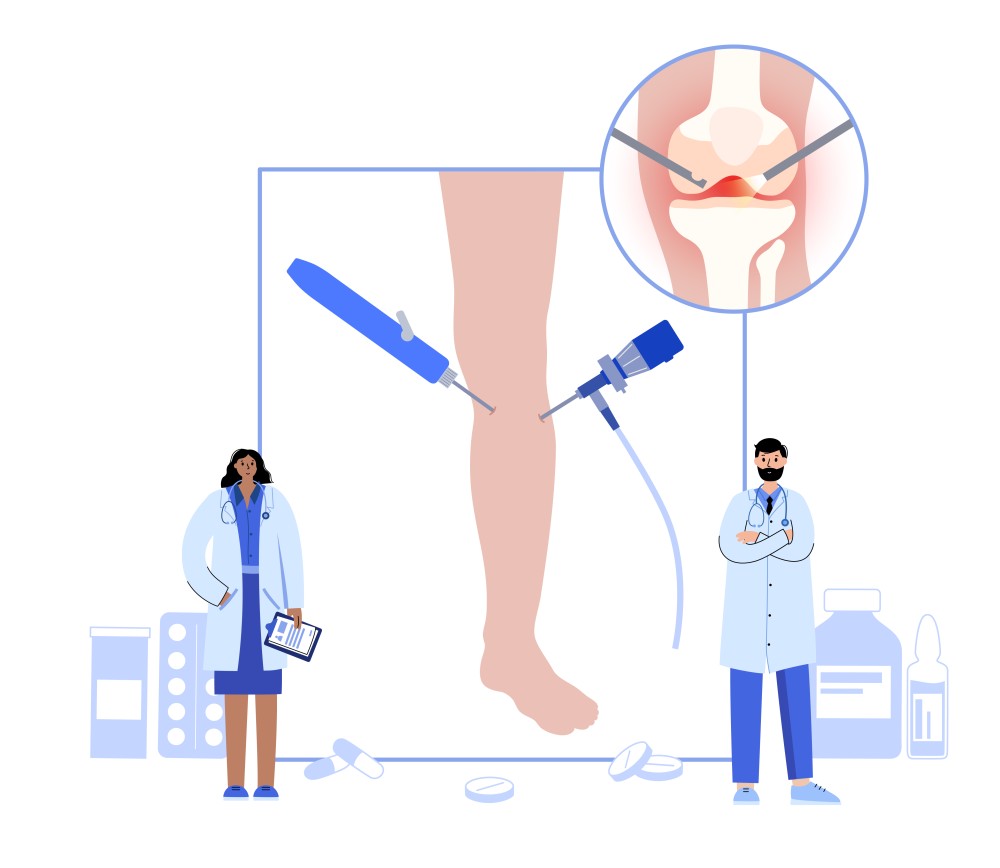Arthroscopic/keyhole knee and shoulder surgeries

Arthroscopic or keyhole knee and shoulder surgeries are minimally invasive procedures used to diagnose and treat joint problems through small incisions. These surgeries involve inserting a tiny camera and specialized instruments into the joint to perform repairs or corrections without the need for large incisions.
Causes:
- Meniscus Tears: Torn cartilage in the knee that causes pain and limited mobility.
- ACL/PCL Tears: Injuries to the knee ligaments that stabilize the joint.
- Rotator Cuff Tears: Torn shoulder tendons affecting arm movement and stability.
- Shoulder Impingement Syndrome: Shoulder joint inflammation causing pain with movement.
- Cartilage Damage: Wear and tear or injury affecting joint surfaces.
Treatment: Arthroscopic/keyhole surgeries involve:
- Diagnostic Evaluation: Using a camera to visualize the inside of the joint and identify the problem.
- Repair or Reconstruction: Using specialized instruments to repair or reconstruct damaged tissues, ligaments, or tendons.
- Debridement: Removing damaged cartilage, tissue fragments, or bone spurs contributing to joint pain.
- Rehabilitation: Post-operative rehabilitation to strengthen muscles, restore range of motion, and optimize joint function.
These minimally invasive procedures offer quicker recovery times, less post-operative pain, and reduced risk of complications compared to traditional open surgeries, helping patients regain mobility and improve joint function effectively.